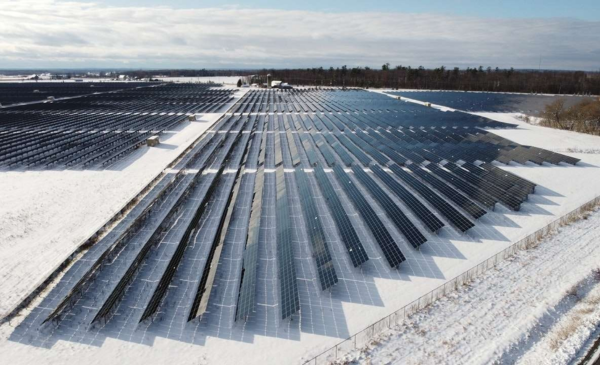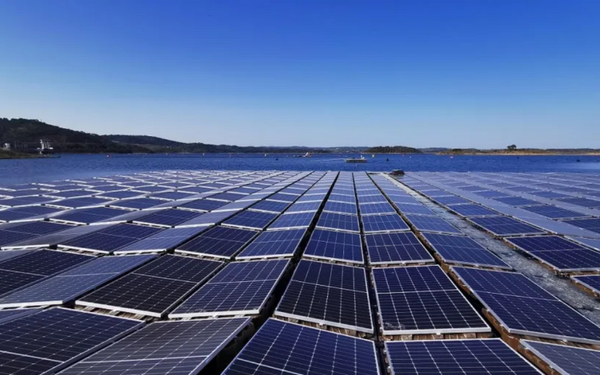Iberdrola of Spain has received an environmental permit from the Portuguese Environment Agency (APA) to build a solar facility near Santiago do Cacém, Portugal. This development will make it the largest solar farm in Europe and the sixth largest globally, according to the developers.
Scheduled to start generating power in 2025, the solar farm will be named after the famous poet Fernando Pessoa and will have an installed capacity of 1,200 MW. Iberdrola says it will produce enough green energy to power about 430,000 homes, which is nearly double the population of Porto. The plant is also expected to reduce annual gas consumption by 370 million cubic meters.
Iberdrola and Prosolia Energy are partnering on this massive project, with the Portuguese operator REN handling grid connectivity.
The Mediterranean is becoming a key area for renewable energy technology.

This solar power plant is designed to support the local ecosystem. The project is expected to create over 2,500 jobs, provide solar energy to nearby communities, boost tourism, and offer vocational training programs.
To support the environment, native trees will be planted around the facility, and the land will be used for sheep grazing and beehive installations.
Iberdrola’s Nez de Balboa solar panels in Portugal serve as a thank-you to the company for its commitment to renewable energy.
This solar farm sets a new benchmark for Europe’s clean energy goals and provides environmental and social benefits. Ignacio Galán, Executive Chairman of Iberdrola, highlighted the importance of reducing reliance on fossil fuels. “We are proud to reinforce and expand our commitment to Portugal by investing in sustainable energy projects nationwide. The Portuguese government’s support has been pivotal in the swift progress of this initiative,” Galán said.
Portugal’s favorable renewable energy policies have encouraged Iberdrola to plan an additional €3 billion investment in wind and solar power over the coming years.
Iberdrola has already constructed and operationalized three solar farms in Portugal, with two more under development and expected to be operational in 2023 and 2024.
If similar initiatives are implemented across Europe, the European Union could potentially achieve its targets of generating 320 GW of solar power by 2025 and over 600 GW by 2030.
This project also aligns with the European Green Deal’s objectives, aiming to make Europe the first climate-neutral continent by 2050. It reflects the global shift towards renewable energy as countries strive to meet their Paris Agreement commitments. The solar farm near Santiago do Cacém showcases the collaborative efforts needed to transition to a sustainable energy future.
Additionally, the integration of advanced solar technologies, such as bifacial panels and energy storage systems, will enhance the efficiency and reliability of the solar farm. These innovations will ensure a stable supply of green energy, even during periods of low sunlight, contributing to the resilience of the energy grid.
The success of this project could serve as a model for other regions, demonstrating the feasibility and benefits of large-scale renewable energy projects. It underscores the importance of public and private sector collaboration in driving the energy transition and highlights the role of innovative technologies in achieving sustainability goals.

Subtly charming pop culture geek. Amateur analyst. Freelance tv buff. Coffee lover
